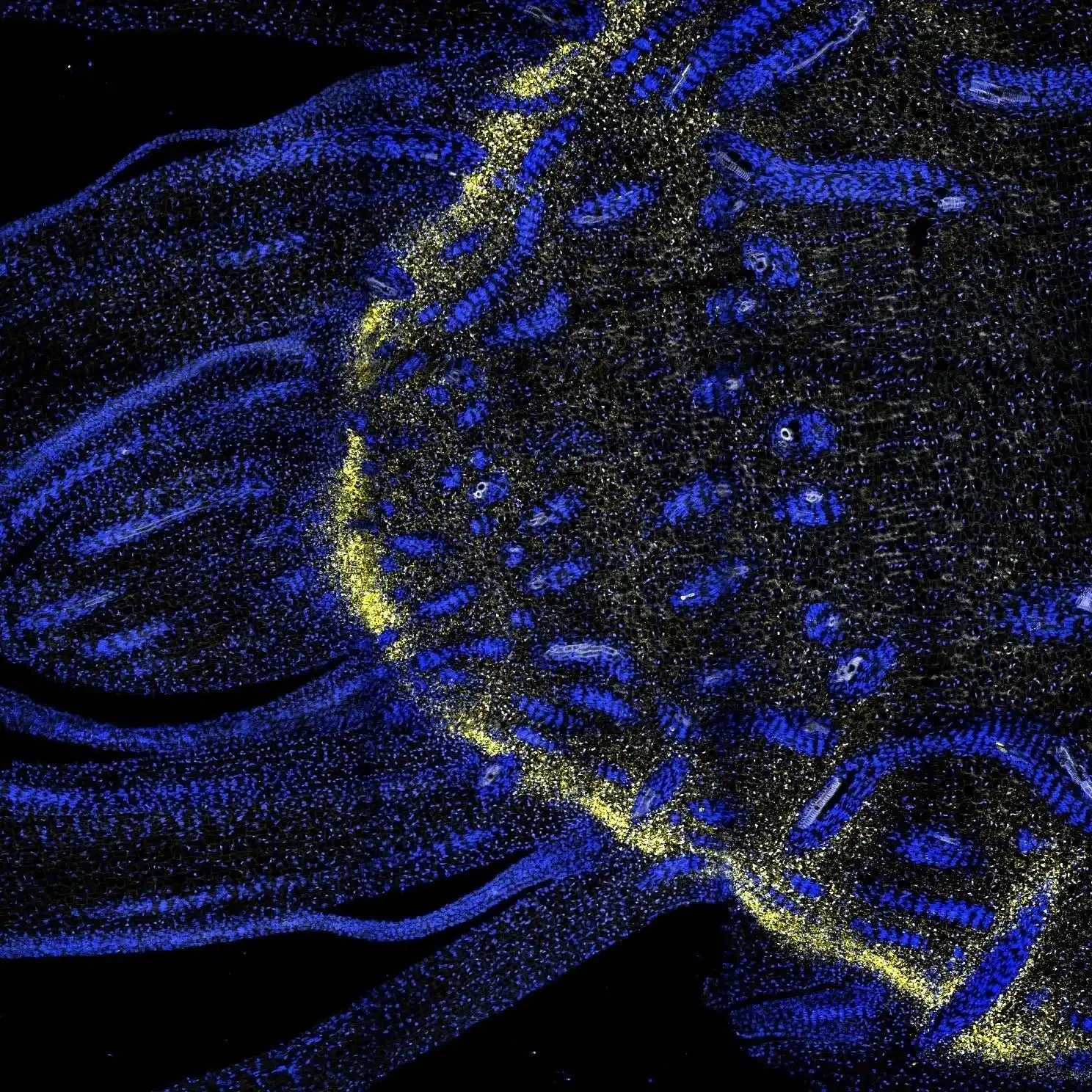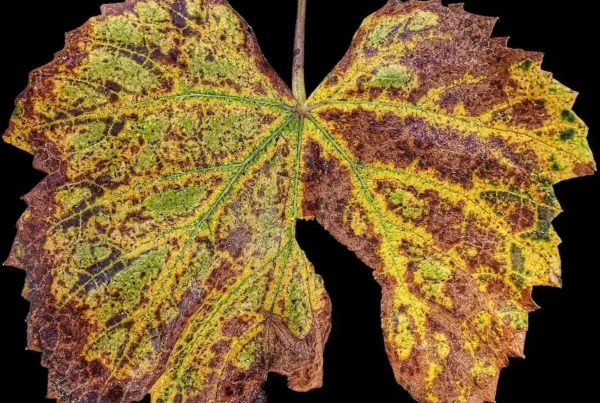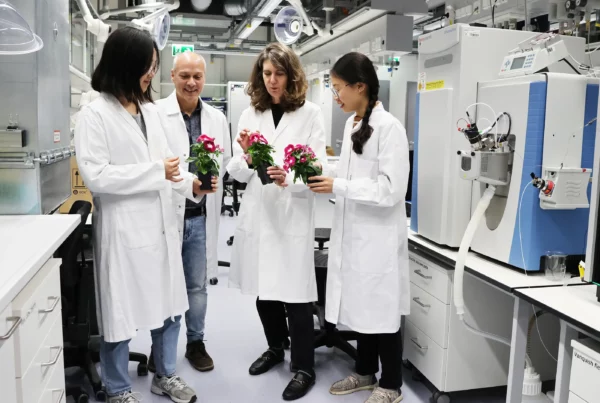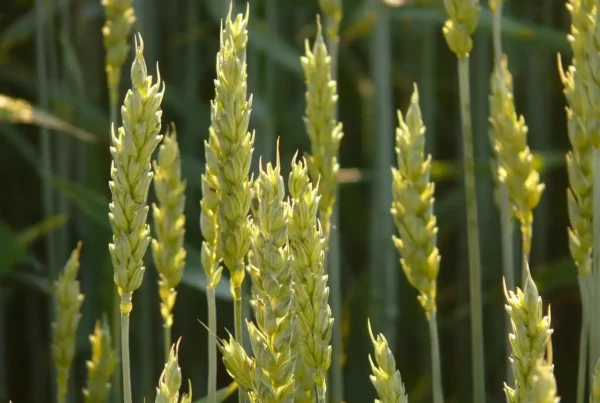Bioenergy sorghum is an important resource for the production of biofuels and bioproducts and a critical component of a sustainable agricultural future. Researchers have been working hard to make this tall, drought-tolerant plant even more productive and resilient to harsh environmental conditions. But those efforts are hampered by a lack of knowledge about the inner working of plant cells, which prevents scientists from giving the proper genetic instructions to modify its key traits—including oil production.
A team led by researchers at the Center for Advanced Bioenergy and Bioproducts Innovation (CABBI)—a Department of Energy (DOE) Bioenergy Research Center (BRC)—has created a valuable new resource that offers a deeper understanding of this valuable bioenergy crop and the possibility of designing a more resilient sorghum plant in the future.
The work is a collaboration between CABBI and the Great Lakes Bioenergy Research Center (GLBRC), a fellow BRC; the HudsonAlpha Institute for Biotechnology; and the Environmental Molecular Sciences Laboratory (EMSL), a DOE user facility at Pacific Northwest National Laboratory (PNNL).
The researchers identified gene expression patterns in the major cell types that make up the tissue of sorghum stems—which account for 80% of the plant’s total biomass—as well as potential cell-type-specific promoters and underlying regulatory gene networks.
Their aim was to develop a picture of all gene expression patterns at the single cell-type level, which is critical to the modification of this plant through genetic engineering—a process scientists use to modify one or a few target genes to change plant traits. Their work was published in The Plant Journal.
“This study allows us to decipher sorghum stem physiological and molecular characteristics at the cell-type level, but it also helps other scientists with diverse interests pinpoint candidate genes in developing a larger, more resilient sorghum,” said lead author Jie Fu, a Ph.D. candidate with CABBI Co-PI Amy Marshall-Colon, Professor of Plant Biology at the University of Illinois Urbana-Champaign.
The researchers adapted a pre-existing technique called laser capture microdissection (LCM) for sorghum stem tissue with more stubborn cell walls, where they used an ultraviolet (UV) laser as a knife to isolate different cell types. Coupled with a high-throughput technique called RNA-sequencing, which can test expression patterns of all the genes at once, they were able to achieve a comprehensive atlas of gene expression patterns at the early vegetative growing stage, uncovering cell-type-specific expression, pathways, and underlying regulatory networks.
This high-throughput gene expression database can serve as a basic tool to allow researchers with diverse interests across BRCs to explore sorghum stem molecular and physiological traits at the unprecedented cell-type level.
The expression patterns discovered in this study provide sorghum researchers with a chance to design cell-type specific promoters that can enable targeted gene expression at the desired location, keeping interference from other cell types to a minimum.
The work supports CABBI‘s “plants as factories” approach and the primary goal of its Feedstock Production research—to deliver resilient, highly productive grasses that produce large amounts of lipids and benefit other BRCs using sorghum or similar grasses.
In the long term, successful cell-type isolation using laser capture microdissection will allow other types of “omics” data collection from sorghum stems and contribute to a valuable, comprehensive multi-omics database for this model C4 species.
As a cleaner alternative to petroleum-based products, biofuels and biochemicals made from sorghum and other bioenergy crops can help mitigate climate change and guarantee food security by not competing with staple food crops for land and water.
The study will accelerate the efforts to design a better bioenergy sorghum feedstock, providing not only more knowledge of sorghum stem tissue at the cell-type but also several potential cell-type specific promoters for genetic engineering.
For example, one bottleneck in sorghum lipid production is that oil does not accumulate in its most abundant cell type (pith), and high amounts of lipids accumulate at an early growing stage, which impairs plant growth and results in low biomass.
Applying cell-type-specific promoters upstream of critical genes identified in the plant’s lipid-production process can direct the accumulation of oil in desirable cell types. And with the lab’s ongoing research on gene temporal regulatory patterns, that could eventually lead to lipid accumulation at a more beneficial growing stage as well.
The study is the first high-resolution insight into gene expression in mature internodes—the sections of the stem between nodes where leaves grow, said CABBI Co-PI Kankshita Swaminathan of the HudsonAlpha Institute. “It lays the foundation for engineering specific cell types to produce novel bioproducts,” she said.
Read the paper: The Plant Journal
Article source: CABBI
Author: Julie Wurth
Image: This award-winning image by Brandon James, Project Manager in the Swaminathan lab at the HudsonAlpha Institute, shows a thin slice of part of a Sorghum bicolor shoot apex. The fluorescent probes show cells in the shoot (nuclei labeled in blue) and the expression of RNA transcripts of a gene called KNAT1 (yellow). This is part of work by CABBI and its partners to better understand different cell types within sorghum stems and enable cell-type-specific engineering for bioenergy and novel bioproducts. Credit: Center for Advanced Bioenergy and Bioproducts Innovation (CABBI)






